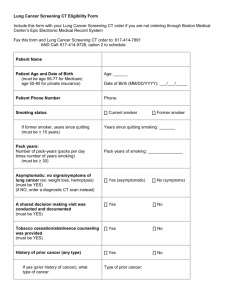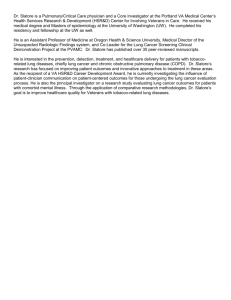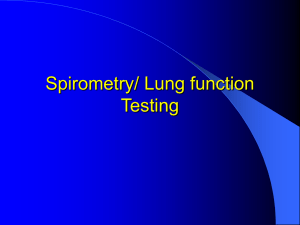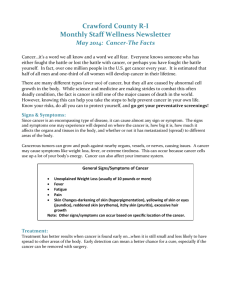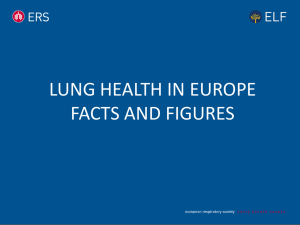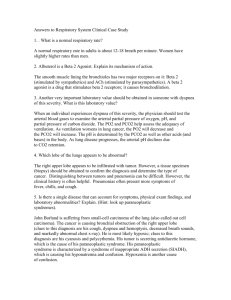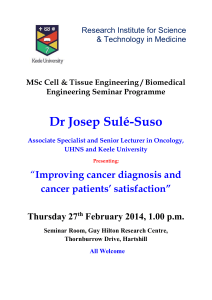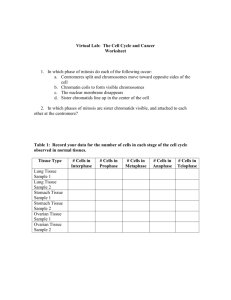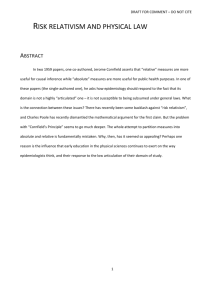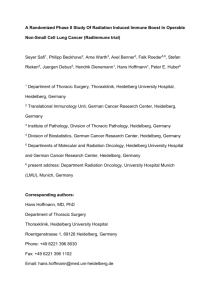Health Matters Issue 9
advertisement
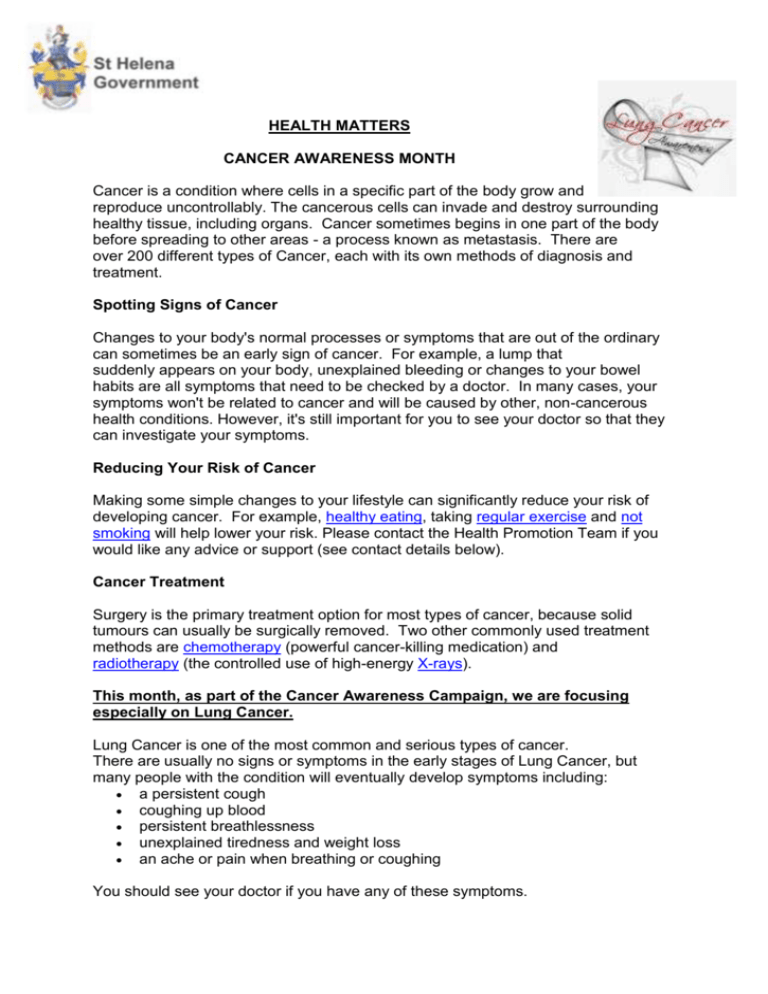
HEALTH MATTERS CANCER AWARENESS MONTH Cancer is a condition where cells in a specific part of the body grow and reproduce uncontrollably. The cancerous cells can invade and destroy surrounding healthy tissue, including organs. Cancer sometimes begins in one part of the body before spreading to other areas - a process known as metastasis. There are over 200 different types of Cancer, each with its own methods of diagnosis and treatment. Spotting Signs of Cancer Changes to your body's normal processes or symptoms that are out of the ordinary can sometimes be an early sign of cancer. For example, a lump that suddenly appears on your body, unexplained bleeding or changes to your bowel habits are all symptoms that need to be checked by a doctor. In many cases, your symptoms won't be related to cancer and will be caused by other, non-cancerous health conditions. However, it's still important for you to see your doctor so that they can investigate your symptoms. Reducing Your Risk of Cancer Making some simple changes to your lifestyle can significantly reduce your risk of developing cancer. For example, healthy eating, taking regular exercise and not smoking will help lower your risk. Please contact the Health Promotion Team if you would like any advice or support (see contact details below). Cancer Treatment Surgery is the primary treatment option for most types of cancer, because solid tumours can usually be surgically removed. Two other commonly used treatment methods are chemotherapy (powerful cancer-killing medication) and radiotherapy (the controlled use of high-energy X-rays). This month, as part of the Cancer Awareness Campaign, we are focusing especially on Lung Cancer. Lung Cancer is one of the most common and serious types of cancer. There are usually no signs or symptoms in the early stages of Lung Cancer, but many people with the condition will eventually develop symptoms including: a persistent cough coughing up blood persistent breathlessness unexplained tiredness and weight loss an ache or pain when breathing or coughing You should see your doctor if you have any of these symptoms. Who is Affected? Lung Cancer mainly affects older people. It is rare in people younger than 40, but the rates of Lung Cancer rise sharply with age. Although people who have never smoked can develop Lung Cancer, smoking is the main cause (about 90% of cases). This is because smoking involves regularly inhaling a number of different toxic substances. Lung Cancer is most commonly diagnosed in people aged 70-74 years. If you are interested in giving up smoking and would like advice and support, please contact the Health Promotion Team (contact details below). Treating Lung Cancer The treatment for Lung Cancer depends on the type of cancer, how far it has spread and how good your general health is. If the condition is diagnosed early and the cancerous cells are confined to a small area, surgery to remove the affected area of lung is usually recommended. If surgery is unsuitable due to your general health, radiotherapy to destroy the cancerous cells may be recommended instead. If the cancer has spread too far for surgery or radiotherapy to be effective, chemotherapy is usually recommended. Outlook As Lung Cancer does not usually cause noticeable symptoms until it has spread through much of the lungs or into other parts of the body, the outlook for the condition is not as good as many other types of cancer. Overall, about 1 in 3 people with the condition will live for at least a year after they are diagnosed and fewer than 1 in 10 people will live for at least five years. However, survival rates can vary widely depending on how far the cancer has spread at the time of the diagnosis. Early diagnosis can make a big difference. Do remember though, as with all health problems, prevention is better than a cure and as stated above, eating healthily, maintaining a healthy weight, stopping smoking and taking regular exercise can help to prevent many cancers developing in the first place. For further information, contact Marian Kanes, Health Promotion Trainer at hp.trainer@publichealth.gov.sh, or Marian Yon, Health Promotion Coordinator at marian.yon@publichealth.gov.sh. Marian Kanes Health Promotion Trainer SHG 12 October 2015

